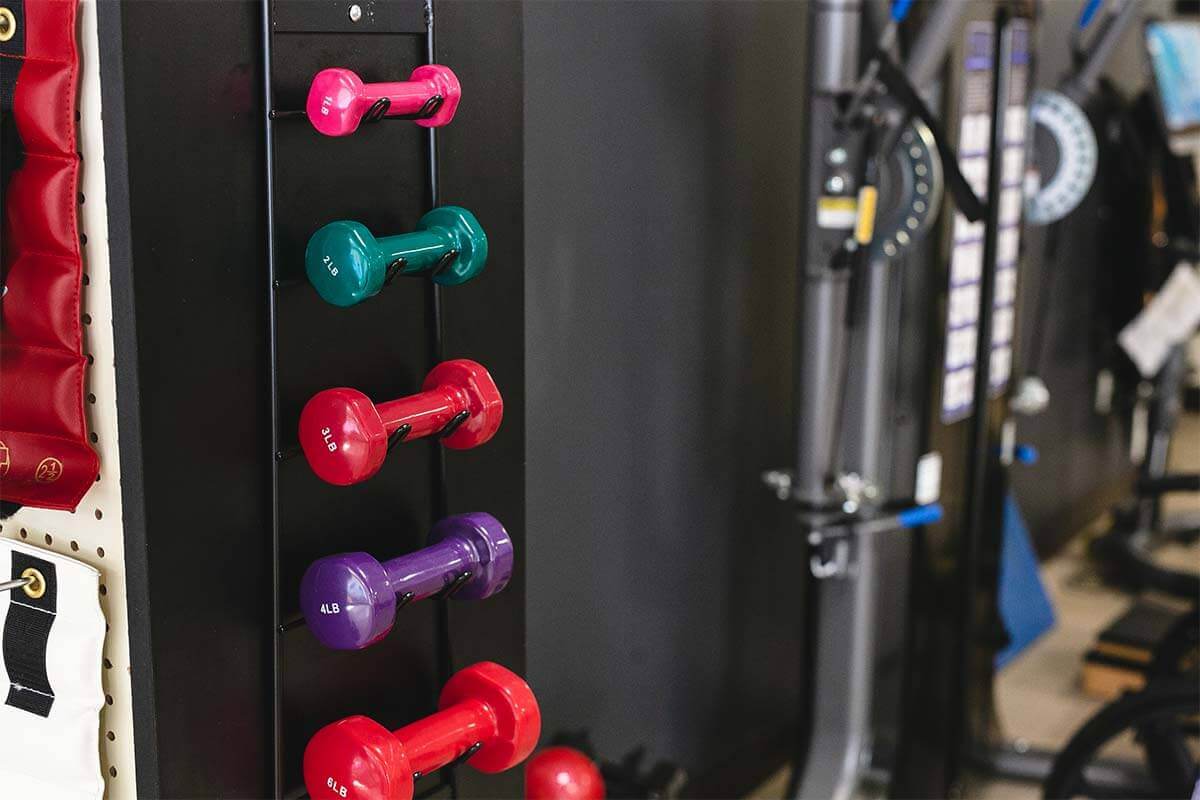
Strength in Numbers: Tips for Maintaining Your Strength
Published by Vivage on
Jul 1, 2021 8:00:00 AM
From the time we were children, we have been taught the importance of strong muscles and bones. Your parents likely told you to eat your vegetables and drink milk so that you would “grow up to be big and strong.” Even though you are all grown up now, the importance of maintaining your strength has not changed.
Maintaining strong muscles is essential to leading an active, fulfilling lifestyle. Helping to maintain independence, allowing you to continue to participate in the activities you enjoy, and preventing or reducing symptoms of chronic diseases such as arthritis, osteoporosis, or heart disease, maintaining strong muscles and bones is crucial.
Vivage offers post-hospitalization rehabilitation and outpatient therapy services in communities throughout Colorado and Missouri. We understand the important role that strength plays in achieving your desired lifestyle. As we age, it can be challenging to maintain or strengthen our muscles. Due to changing health concerns or conditions, it can be hard to know what exercises and activities are safe to do. Vivage is sharing tips on how you can maintain your strength.
First and Foremost, Talk to Your Physician
The first step on your fitness and strength-building journey is to seek the advice of a healthcare professional. Your doctor knows your medical history and existing conditions, so it is important to get their input regarding your exercise routine.
Ask your physician which exercises they think would best complement your lifestyle and help to improve your strength. Gain insight into how often you should be exercising and what intensity level would be the most beneficial for you.
Do not make any significant lifestyle or fitness routine changes until you talk to your physician and they inform you that it would be beneficial to your health.
Be Gentle on Your Joints
As we age, our bodies go through natural changes. One of these changes is how our joints operate.
A joint is what connects the bones without allowing them to physically contact one another. Cartilage lines each joint and is lubricated by a fluid called synovial fluid. Over the years, however, this cartilage becomes thinner, and there is less synovial fluid, making the joints feel stiff.
When working on building strength in your muscles, remember to be kind to your joints. Instead of performing exercises that single out one area at a time, focus on full-body movements and exercises. By utilizing your whole body, you relieve pressure on your joints and improve your range of motion.
Utilize Your Body Weight
If you are just starting out or if lifting weights is too intense, stick to doing exercises with just your body weight. Exercises such as squats, lunges, and pushups are just as effective for building and maintaining strength, but you can reduce your risk of injury while learning proper form and technique.
Other bodyweight exercises include:
- Wall pushups
- Chair dips
- Shoulder presses
- Step-ups
- Crunches or sit-ups
- Standing marches
- Seated twists
- Leg lifts
Don’t Forget About Balance and Flexibility
Balance and flexibility are also beneficial to building and maintaining strength. When you have good balance, and your muscles are flexible, you can perform strength-building exercises better. Additionally, working on your balance and flexibility can reduce your chance of injury. Activities such as yoga and tai chi are great for improving in these areas.
Building and Maintaining Strength at Vivage
Our post-hospitalization rehabilitation and outpatient therapy services at Vivage focus on providing personalized care that promotes overall wellness and helps each individual meet their recovery goals. Through physical therapy, occupational therapy, speech and language therapy, and more, our communities help individuals regain and/or maintain their strength.
With private suites, nutrition-specific dining options, and medical physicians and nurses available, we focus on strength and recovery.
Whether you have recently returned home from a post-hospitalization recovery stay at one of our communities, have recently discharged home from the hospital, or you simply notice that your body isn't quite functioning at the same level it was before, outpatient therapy might be the answer for you. Our trained therapists will assist you in your recovery journey with weekly appointments at one of our communities while you continue your own exercise routine in the comfort of your own home. We encourage you to visit with your physician to see if outpatient therapy is recommended for you.
Building and maintaining strength is a major component of leading an active, engaging lifestyle. To live life to the fullest, it is important to focus on your health and strengthen your muscles safely. Our team members can help you do this.
To learn more about the post-hospitalization rehabilitation and outpatient therapy services that our Vivage communities offer, contact a member of our team or visit our website.